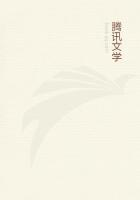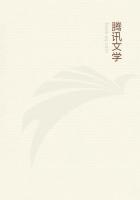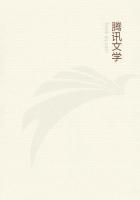A gentleman, curious in birds, wrote me word that his servant had shot one last January, in that severe weather, which he believed would puzzle me. I called to see it this summer, not knowing what to expect: but, the moment I took it in hand, I pronounced it the male garrulus bohemicus or German silk-tail, from the five peculiar crimson tags or points which it carries at the end of five of the short remiges. It cannot, I suppose, with any propriety, be called an English bird: and yet I see, by Ray's Philosoph. Letters, that great flocks of them, feeding upon hews, appeared in this kingdom in the winter of 1685.
The mention of hews put me in mind that there is a total failure of that wild fruit, so conducive to the support of many of the winged nation. For the same severe weather, late in the spring, which cut off all the produce of the more tender and curious trees, destroyed also that of the more hardy and common.
Some birds, haunting with the missal-thrushes, and feeding on the berries of the yew-tree, which answered to the description of the merula torquata, or ring-ousel, were lately seen in this neighbourhood. I employed some people to procure me a specimen, but without success. See Letter XX.
Query.....Might not canary birds be naturalized to this climate, provided their eggs were put in the spring, into the nests of some of their congeners, as goldfinches, greenfinches, etc. ? Before winter perhaps they might be hardened, and able to shift for themselves.
About ten years ago I used to spend some weeks yearly at Sunbury, which is one of those pleasant villages lying on the Thames, near Hampton-court. In the autumn, I could not help being much amused with those myriads of the swallow kind which assemble in those parts. But what struck me most was, that, from the time they began to congregate, forsaking the chimnies and houses, they roosted every night in the osier-beds of the sits of that river. Now this resorting towards that element, at that season of the year, seems to give some countenance to the northern opinion (strange as it is) of their retiring under water. A Swedish naturalist is so much persuaded of that fact, that he talks, in his calendar of Flora, as familiarly of the swallows going under water in the beginning of September, as he would of his poultry going to roost a little before sunset.
An observing gentleman in London writes me word that he saw a house-martin, on the twenty-third of last October, flying in and out of its nest in the Borough. And I myself, on the twenty-ninth of last October (as I was travelling through Oxford), saw four or five swallows hovering round and settling on the roof of the county-hospital.
Now is it likely that these poor little birds (which perhaps had not been hatched but a few weeks) should, at that late season of the year, and from so midland a county, attempt a voyage to Goree or Senegal, almost as far as the equator? *(* See Adamson's Voyage to Senegal.)
I acquiesce entirely in your opinion--that, though most of the swallow kind may migrate, yet that some do stay behind and hide with us during the winter.
As to the short-winged soft-billed birds, which come trooping in such numbers in the spring, I am at a loss even what to suspect about them. I watched them narrowly this year, and saw them abound till about Michaelmas, when they appeared no longer.
Subsist they cannot openly among us, and yet elude the eyes of the inquisitive: and, as to their hiding, no man pretends to have found any of them in a torpid state in the winter. But with regard to their migration, what difficulties attend that supposition! that such feeble bad fliers (who the summer long never flit but from hedge to hedge) should be able to traverse vast seas and continents in order to enjoy milder seasons amidst the regions of Africa!
Letter XIII
To Thomas Pennant, EsquireSelborne, Jan. 22, 1768.
Sir,As in one of your former letters you expressed the more satisfaction from my correspondence on account of my living in the most southerly county; so now I may return the compliment, and expect to have my curiosity gratified by your living much more to the north.
For many years past I have observed that towards Christmas vast flocks of chaffinches have appeared in the fields; many more, Iused to think, than could be hatched in any one neighbourhood.
But, when I came to observe them more narrowly, I was amazed to find that they seemed to be almost all hens. I communicated my suspicions to some intelligent neighbours, who, after taking pains about the matter, declared that they also thought them all mostly females; at least fifty to one. This extraordinary occurrence brought to my mind the remark of Linnaeus; that 'before winter, all their hen chaffinches migrate through Holland into Italy.' Now I want to know, from some curious person in the north, whether there are any large flocks of these finches with them in the winter, and of which *** they mostly consist? For, from such intelligence, one might be able to judge whether our female flocks migrate from the other end of the island, or whether they come over to us from the continent.
We have, in the winter, vast flocks of the common linnets; more, Ithink, than can be bred in any one district. These, I observe, when the spring advances, assemble on some tree in the sunshine, and join all in a gentle sort of chirping, as if they were about to break up their winter quarters and betake themselves to their proper summer homes. It is well known, at least, that the swallows and the fieldfares do congregate with a gentle twittering before they make their respective departure.
You may depend on it that the bunting, emberiza miliaria, does not leave this country in the winter. In January 1767 I saw several dozen of them, in the midst of a severe frost, among the bushes on the downs near Andover: in our woodland enclosed district it is a rare bird.
Wagtails, both white and yellow, are with us all the winter. Quails crowd to our southern coast, and are often killed in numbers by people that go on purpose.

